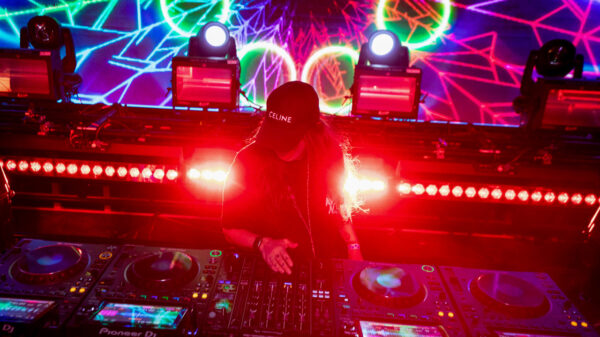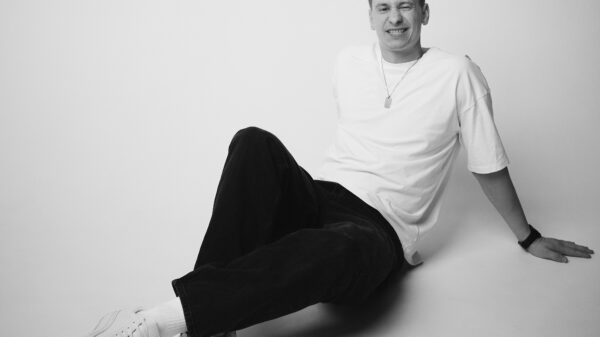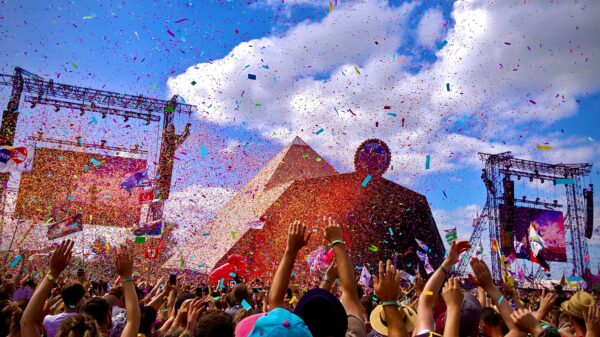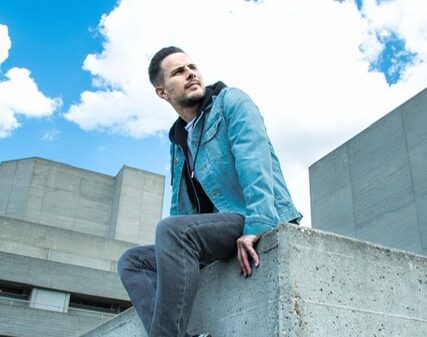If you're into electronic music in any way, shape, or form, it's very likely that you have heard the name Bassnectar before. That name, and the man behind the project, Lorin Ashton, seem to be floating away from each other in their definitions. Bassnectar as a musical phenomenon has turned into a cult-like following where fans from all over the nation are traveling around the States to catch sets whenever and wherever they possibly can. Many comparisons have been made with the following of Bassnectar and the following of many other major acts in musical history such as The Grateful Dead. Now, those opinions have not come without scrutiny, but the fact of the matter is that Ashton has built the Bassnectar machine into an unstoppable force of pure expression for thousands, and that is something that not many in the electronic music can explain.
However, in a recent interview with Westword, Ashton seems to speak about the disconnect between his project, and the way the rest of the world see's it. For better or for worse, the producer spoke at lengths about various topics providing an inside look into the man behind the powerhouse experience. Topics range from his residency at the famed Insomniac festival Electric Forest, his latest event happening as we speak in Colorado, and again, the previous disconnect we have mentioned. Touching on that last piece, Ashton went into detail in the interview saying:
Well, to be clear, I 100 percent don’t feel like I’m any part of EDM any more than I’m part of hip-hop or rock and roll. And I don’t mean that coyly, like I’m dancing around the reality. I really, truly have never felt like I was a part of that.
Along the lines of electronic music, it seems that Nectar not only feels respectfully separate from many of his fellow electronic producers, but also that the scene as a whole is pushing out content which doesn't seem to impress him very much. He explained further saying:
I feel EXTREMELY — and you can put that in all caps — disinterested in EDM. There are very few EDM artists who I like musically. There are very few EDM artists who I’m impressed [with] or intrigued by their personality or what they’re projecting.
Continuing to touch on the broader strokes of EDM as a whole, Ashton finds himself to be quarrelsome with the idea of watching 1-3 DJ's on stage dancing in front of a crowd. While the technical difficulties of a true live performance are underscored, he moves to say:
“I’m not saying this rudely to talk shit on anyone, but I truly feel so unimpressed by the concept of standing in a crowd and looking and one or two or three humans on stage dancing alone to music. It’s not that mind-blowing. Again, I’m not saying that all DJs suck except for me. I’m saying, me included, it’s preposterous.”
Calling himself out as apart of the crowd removed for us any sense of higher authority or pretentiousness from the conversation. Nectar definitely provided an interesting take on the electronic music scene in this interview, and maybe it goes to show why he has found himself as such an outlier in the scene, an artist who doesn't follow the same code the rest do. That IS what makes Bassnectar so popular, and to us this piece seems to genuinely back up the legitimate nature of the project and the fan base.
Moving forward, Ashton dives into how he combats these negative views of the scene overall in order to find his own place within music. Touching on his event Freestyle Sessions as an example, Nectar explains:
“I really want to go to the opposite end of the spectrum and go super-special, super-intimate, super-creative, super-old school. It’s funny how many uphill battles you have to fight to get to do that. Getting them to let you play on the floor — like, I want to be on the floor, in a booth, and not looked at — not because I’m hiding. I want to provide people with this experience that I don’t think they necessarily get these days, which is just to be immersed in music and not be at a show, just to be at an event of dancing and immersion.”
Whether you love him or hate him, it's truly difficult to knock the movement and the sincere attention to the artistic aspect of music that he embodies. Check out the full interview here.


















